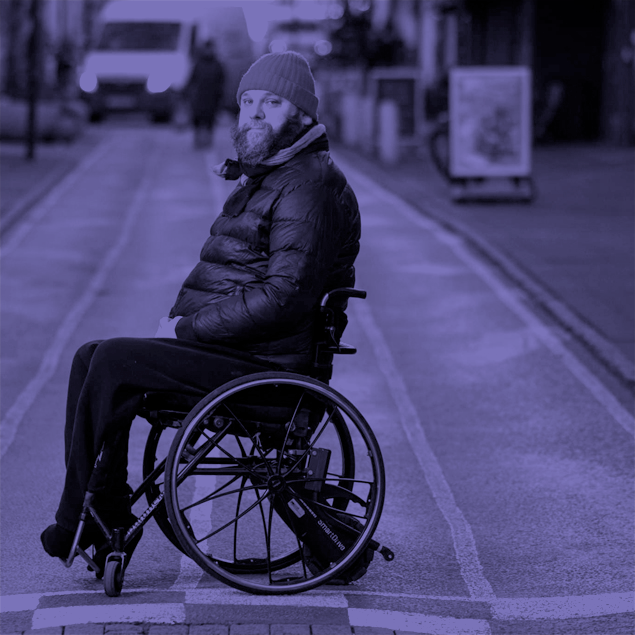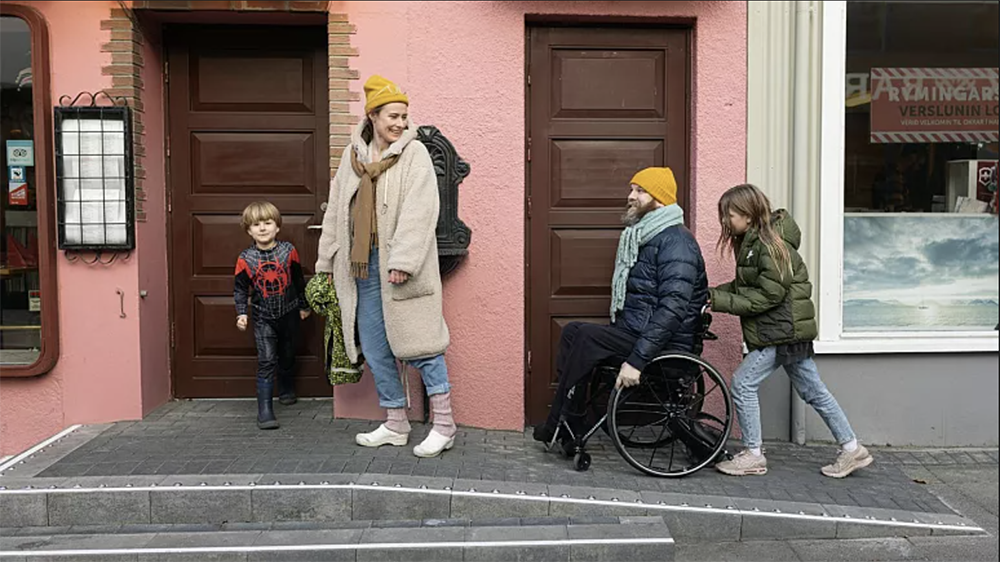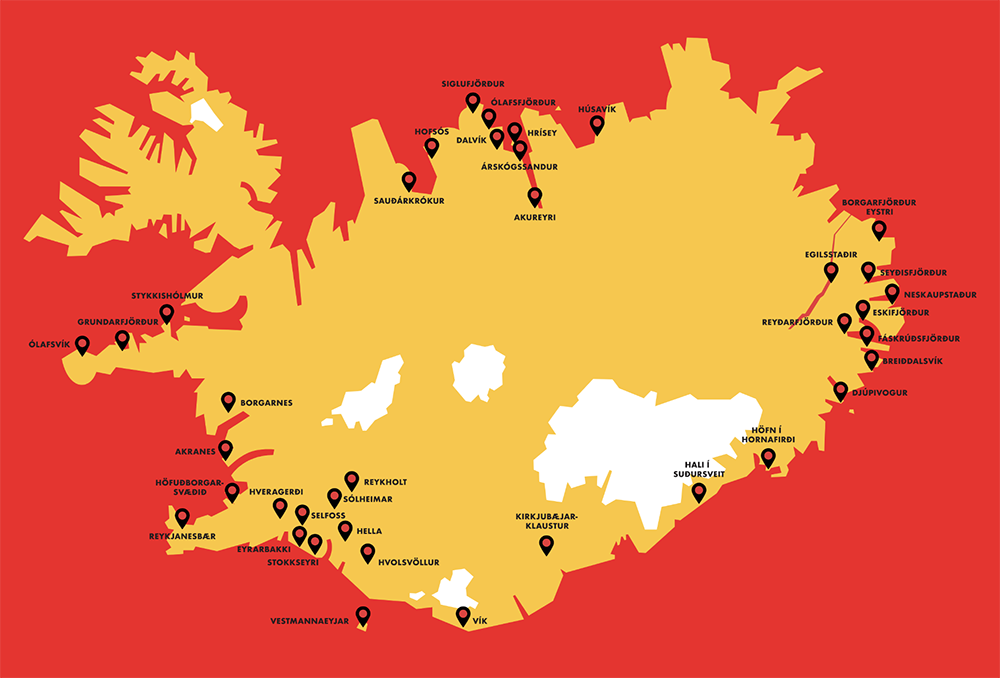
The Design Observer Twenty | Sponsored by IDEO
The Design Observer Twenty is our curated selection of twenty remarkable people, projects, and big ideas solving an urgent social need.
“I started to think about all the times I’ve waited outside places, isolated and alone,” Þorleifsson tells Design Observer, recalling a turning point two years ago. He was stuck alone outside a shop in his native Iceland without his wife and kids because the building had no wheelchair access. He had just sold Ueno, his digital design company, to Twitter and had the time to sit with both the despair and the solution. “Iceland hasn’t been spending enough money on accessibility; I always have to call ahead when going out,” he told Euronews. “I’ve lived in places where you don’t need to do this.”
In March 2021, he helped launch Ramp Up, a collaborative venture with local businesses, unions, government ministries, banks, and elected officials to build wheelchair ramps for public buildings. They started with a pilot program of 100 ramps across Reykjavík to make all sorts of businesses accessible — ice cream shops, dentist offices, even gas stations. “The biggest problem for us is convincing people that it’s possible,” he says, ticking through a list of collaborators who need to be in the loop on even a simple project.

Haraldur Þorleifsson using an accessible ramp while on a walk with his family. Image: © Axel Sigurðsson
Just two and a half years in, Ramp Up has completed some 850 ramps and has become a movement for inclusion that is energizing communities. They plan to go global but are starting with Europe because of efficiencies working in the EU. (It’s also easier for Þorleifsson to find direct flights.) He sounds excited. “I like working with mayors,” he says. “They get stuff done.”
Þorleifsson is an unlikely urban reformer.
He founded Ueno in 2014 and grew its global influence until it touched much of the tech we use today, including Facebook, Twitter, and Square. But he’s been thinking about his place in the built world since he was diagnosed with a type of genetic muscle atrophy called dysferlinopathy as a small child. He writes and speaks openly on very tender experiences, like sadness about his changing body; encounters with depression; and his quest for joy through family, community, and music. (Don’t miss his 2023 keynote at Figma’s Config conference.) “Every time you hear a different point of view, it helps,” he says. “It’s something we all need.”

Ramp up has installed over 1,500 accessibility ramps in Iceland.
And he is asking big questions about the digital world, noting that for all the opportunities to connect online, people don’t feel more connected. “They actually feel more isolated,” he says. “You can contact anyone, my friends, on multiple platforms, and yet, somehow people are less and less connected.” Technology is very good at moving fast and scaling, he says. “How does what we build make people feel? How can we improve that?” It’s a tricky metric for business but the right one for life. “I think we’ve lost the human touch.”
Essay by Ellen McGirt.
